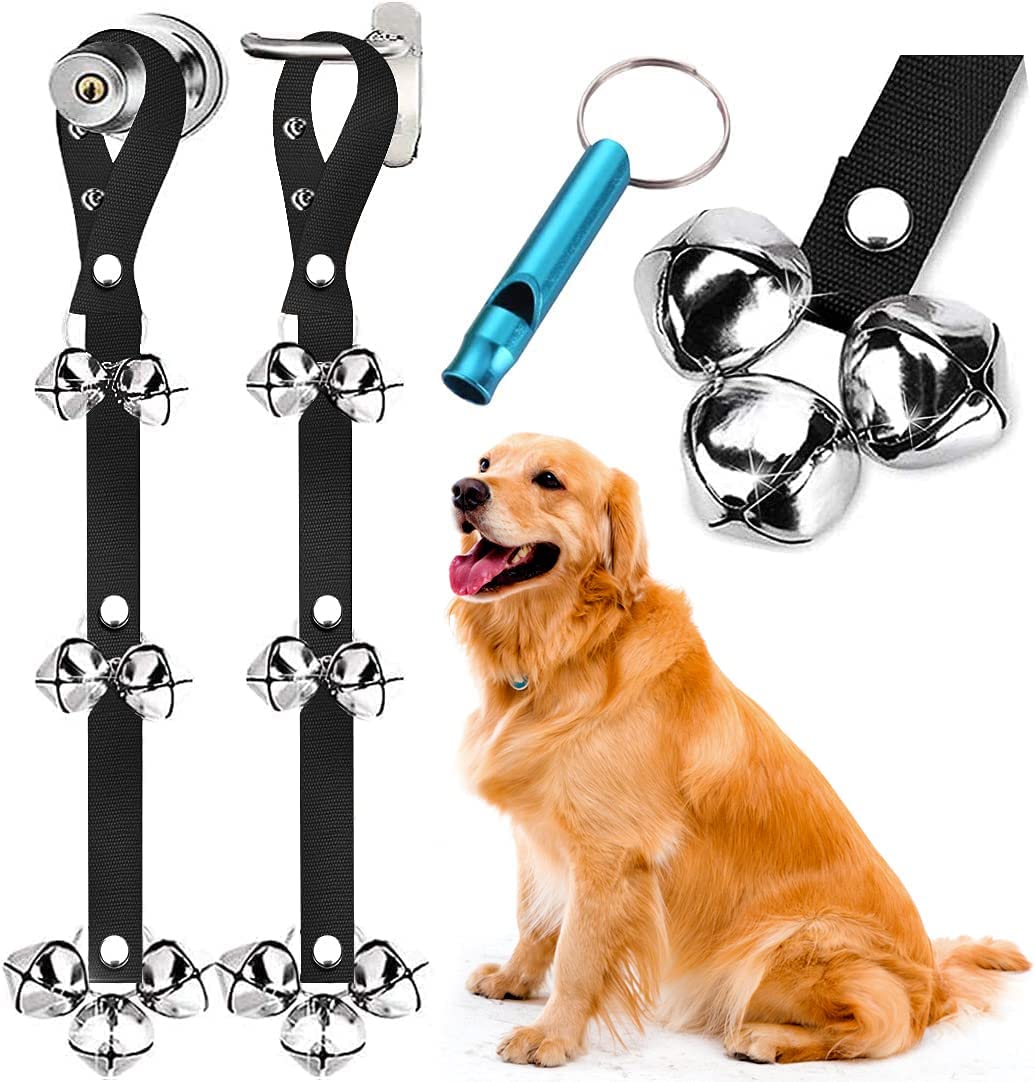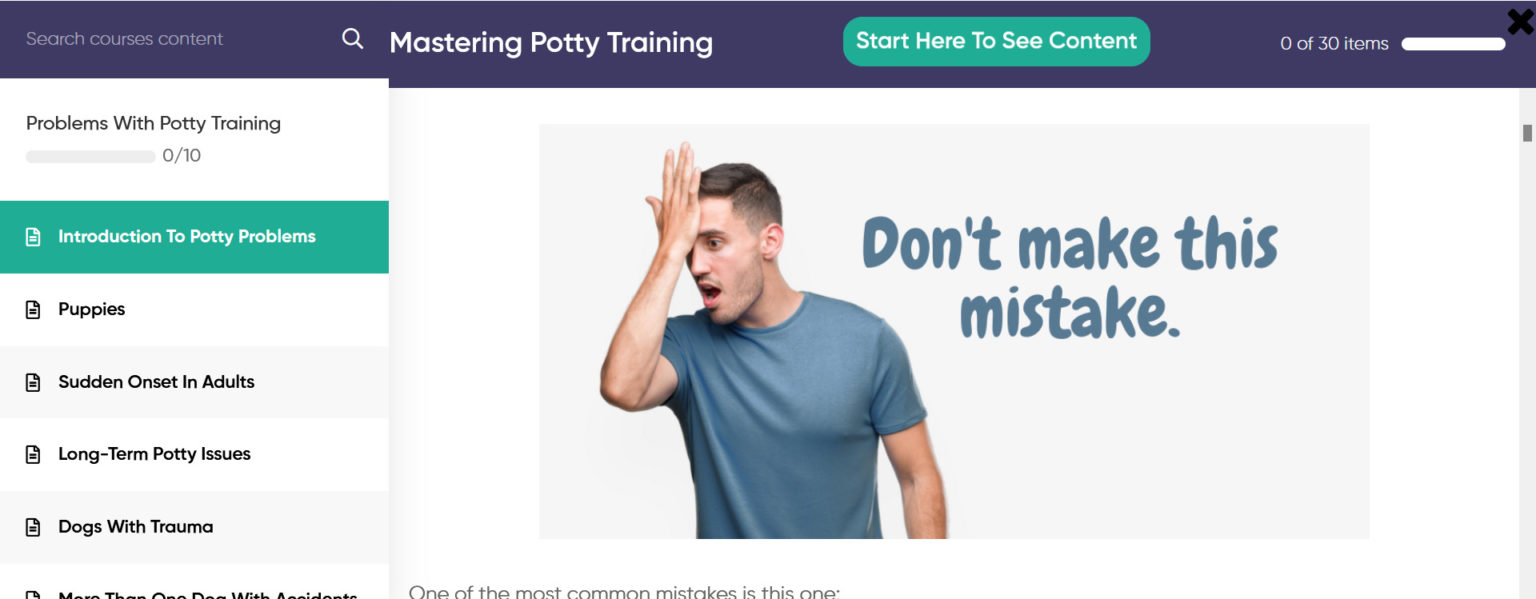iHeartDogs is reader-supported, so some of the links below may include affiliate links where we are paid a commission at no additional cost to you.
Potty training a German Shepherd can be a challenging and time-consuming process, but it’s an essential part of their training and development. As one of the most intelligent and loyal dog breeds, German Shepherds require a consistent and positive approach to potty training to ensure success. In this article, we’ll reveal seven secrets to quickly potty training a German Shepherd, based on proven methods that have worked for experienced dog trainers and owners. By following these tips and adapting them to your individual situation, you can enjoy a clean and comfortable home with your furry companion while building a strong bond and trust with them.
Note: While the tips below should be very helpful for potty training your German Shepherd, you may consider seeking the help of a professional online dog training course such as SpiritDog, K9 Training Institute or DogAcademy, three of our favorite training resources for potty training.
8 Secrets for Housetraining Your German Shepherd
1. Start Potty Training Your German Shepherd Early and Be Consistent
The sooner you begin potty training your German Shepherd, the better. Puppies can start learning as early as eight weeks old, and it’s easier for them to pick up good habits at this young age. Consistency is also crucial. Choose a designated potty spot outdoors and always bring your German Shepherd to that same area. Stick to a routine, and take them out frequently, especially after meals, naps, and playtime. Your dog will associate the spot with going potty, and the consistent schedule will help reinforce the behavior.
2. Give Your German Shepherd Positive Reinforcement
Positive reinforcement is an effective training method that rewards good behavior instead of punishing bad behavior. When your German Shepherd successfully goes potty outside, offer praise, treats, or playtime as a reward. This will help your dog associate going to the bathroom outside with positive experiences, making them more likely to repeat the behavior. Make sure to reward them immediately after they finish, as dogs have a short memory and may not connect the reward with the action if there’s a delay.
3. Monitor Your German Shepherd’s Behavior
Pay attention to your German Shepherd’s body language and habits, as they can give you clues when they need to go. Common signs include sniffing, circling, whining, or scratching at the door. If you notice any of these behaviors, take your dog outside immediately. In time, you’ll be able to anticipate your dog’s needs, preventing accidents before they happen.
RELATED: Need to potty train your German Shepherd quickly? Check out these affordable online courses!
4. Confine Your German Shepherd to a Small Area
When you’re not able to supervise your German Shepherd, confine them to a small, designated area or crate. Dogs are naturally clean animals and don’t like to soil their living space. By limiting their space, you encourage them to hold it until they can go outside. Make sure the crate is large enough for your dog to stand, turn around, and lie down comfortably, but not so large that they can eliminate in one corner and sleep in another.
5. Gradually Increase Your German Shepherd’s Freedom
As your German Shepherd becomes more reliable in their potty training, you can gradually increase their freedom in the house. Start by allowing them access to one additional room, and monitor their behavior closely. If they continue to have accidents, return to the smaller confinement area and try again later. Gradually expanding their space will help them learn to hold it until they’re outside, even when they’re not in a confined area.
6. Try Using Potty Bells
Potty bells can be a useful tool to let your German Shepherd know they are ready to be taken outside to the bathroom. Teach your German Shepherd to ring the bell with their paw or nose before exiting the door that leads to their potty area. There are many types of potty bells available on Amazon, such as this:
7. Be Patient with Your German Shepherd and Stay Positive
Potty training can be a frustrating process, but it’s essential to stay patient and maintain a positive attitude. Dogs can sense your emotions, and if you’re stressed or angry, it can hinder their progress. Remember that accidents will happen, but don’t punish your German Shepherd for them. Instead, clean up the mess thoroughly to remove any lingering odors that may encourage your dog to eliminate in the same spot again. If you find yourself getting frustrated, take a step back and remind yourself that consistency, patience, and positivity are key.
8. Try an Online Dog Potty Training Course
If you’ve tried everything and your German Shepherd is still having accidents or showing no progress, it may be time to consult a professional dog trainer.
What’s the best online training course to potty train a German Shepherd?
Our 3 favorite online courses are:
1. SpiritDog’s “Mastering Potty Training” Course
This affordable course uses science-based and “fear-free” tactics to potty train your German Shepherd quickly. You’re allowed to ask the trainer unlimited questions, and it comes with a 60-day money-back guarantee.
2. K9 Training Institute’s “Dog Masterclass”
More than just a potty training course, this more comprehensive training course tackles any behavior problem you might face with your dog.
3. DogAcademy Online Dog Training
DogAcademy’s “Housetraining Your Dog” Course This comprehensive online dog training provides you with the methods and techniques needed to successfully housetrain your dog to “go” outside. Emphasizing the importance of a regular schedule, this course ensures a structured and effective training regimen. You’ll also have access to ongoing support to answer any of your questions.
Frequently Asked Questions About Housebreaking a German Shepherd
How do I know when my German Shepherd needs to go potty?
German Shepherds often exhibit signs when they need to go potty, such as sniffing, pacing, whining, or scratching at the door. You should also watch for signs of restlessness or agitation, which may indicate a need to go outside. Establishing a consistent routine for potty breaks can help your German Shepherd learn to communicate their needs to you.
At what age should I begin potty training a German Shepherd puppy?
The best time to begin potty training a German Shepherd puppy is between 8 and 12 weeks of age. At this age, they have better control over their bladder and bowels and can learn to associate going potty with a specific location outside.
How can I potty train an adult German Shepherd?
Potty training an adult German Shepherd follows the same principles as training a puppy, but may take longer due to established habits. It’s important to establish a consistent routine, supervise them closely, and use positive reinforcement techniques to reward successful potty trips outside.
How long does it take to potty train a German Shepherd puppy?
Potty training a German Shepherd puppy can take anywhere from a few weeks to several months, depending on the individual dog and the consistency of training. It’s important to remain patient and consistent with training, as rushing the process can lead to accidents and setbacks.
How often should I take my German Shepherd outside for potty breaks?
German Shepherd puppies should be taken outside every 2-3 hours, as well as after meals, playtime, and naps. As they get older and develop better bladder control, the frequency of potty breaks can be gradually reduced.
How should I potty train my German Shepherd in an apartment if I don’t have a yard?
Potty training a German Shepherd in an apartment or without a yard requires some adaptation of the training approach. Consider using puppy pads or a designated indoor potty area, as well as taking frequent walks outside to establish a routine and provide opportunities for potty breaks. Consistency and positive reinforcement are key to successfully potty training a German Shepherd in these situations.
Master Potty Training Your German Shepherd
Potty training a German Shepherd can be a challenging but rewarding experience for both you and your furry friend. By following the seven secrets to quickly potty training a German Shepherd presented in this article, you can successfully train your German Shepherd to become housebroken in a short amount of time. Remember to establish a consistent routine, use positive reinforcement techniques, and be patient with your dog throughout the process. Whether you’re potty training a German Shepherd puppy or an adult German Shepherd, the same principles apply. With the right approach and commitment to consistency, you can enjoy a clean and comfortable home with your furry companion while building a strong bond and trust with them.





 Toledo, United States.
Toledo, United States.